7F2 Global Studies
Section outline
-
FOCUS / ARONGA learning intentions:
- We are FOCUSING on the role sport has had in defining culture and identity.
- We are FOCUSING on sporting history and culture by investigating the origins of sports
- We are IDENTIFYING current issues associated with participating countries in the FIFA world cup
- We are FOCUSING on why culture and identity of a country is important
EXPLORE / TŪHURA learning intentions:
- We are EXPLORING what it means to live in a bicultural society with many cultures.
- We are EXPLORING different origin stories from various backgrounds.
- We are EXPLORING the challenges faced in the revitalisation of the Māori language and culture.
Kia ora ngā taiohinga mā, nau mai haere mai.
Kohikohi ngā kākano, whakaritea te pārekereke, kia puāwai ngā hua
Gather the seeds, prepare the seedbed carefully, and you will be gifted with abundance of food
Our learning context this term is ‘Kainga Waewae’ - and so relates to your home community here in Flatbush/Ōwairoa. We will be asking 3 big questions for inquiry this term and we will be exploring them in different ways - so we get a more complete picture.
-
Aotearoa New Zealand is a bicultural society, what does that mean?
-
How did you and your whānau come to be here in Flatbush/Ōwairoa in 2023?
-
What was here before we got here?
Success Criteria:
I can discuss what a bicultural society is and how it looks in Aotearoa New Zealand.
I can explain how my whānau came to be in Flatbush/Ōwairoa.
I understand the history of my local community in Aotearoa New Zealand, Flatbush/Ōwairoa.
Activities:
1st activity: RePlacing names - developing an understanding of how colonisation earses and replaces cultural knowledge through a geography exercise.
2nd activity: Inquiry stage 1 - A-NZ histories - inquiring into some of the past 200 years.
-
FOCUS / ARONGA learning intentions:
- We are FOCUSING on the role sport has had in defining culture and identity.
- We are FOCUSING on sporting history and culture by investigating the origins of sports
- We are IDENTIFYING current issues associated with participating countries in the FIFA world cup
- We are FOCUSING on why culture and identity of a country is important
EXPLORE / TŪHURA learning intentions:
- We are EXPLORING what it means to live in a bicultural society with many cultures.
- We are EXPLORING different origin stories from various backgrounds.
- We are EXPLORING the challenges faced in the revitalisation of the Māori language and culture.
Kia ora ngā taiohinga mā, nau mai haere mai.
Kohikohi ngā kākano, whakaritea te pārekereke, kia puāwai ngā hua
Gather the seeds, prepare the seedbed carefully, and you will be gifted with abundance of food
Our learning context this term is ‘Kainga Waewae’ - and so relates to your home community here in Flatbush/Ōwairoa. We will be asking 3 big questions for inquiry this term and we will be exploring them in different ways - so we get a more complete picture.
-
Aotearoa New Zealand is a bicultural society, what does that mean?
-
How did you and your whānau come to be here in Flatbush/Ōwairoa in 2023?
-
What was here before we got here?
Success Criteria:
I can discuss what a bicultural society is and how it looks in Aotearoa New Zealand.
I can explain how my whānau came to be in Flatbush/Ōwairoa.
I understand the history of my local community in Aotearoa New Zealand, Flatbush/Ōwairoa.
Activities:
1st activity: RePlacing names - developing an understanding of how colonisation earses and replaces cultural knowledge through a geography exercise.
2nd activity: Inquiry stage 1 - A-NZ histories - inquiring into some of the past 200 years.
-
FOCUS / ARONGA learning intentions:
- We are FOCUSING on the role sport has had in defining culture and identity.
- We are FOCUSING on sporting history and culture by investigating the origins of sports
- We are IDENTIFYING current issues associated with participating countries in the FIFA world cup
- We are FOCUSING on why culture and identity of a country is important
EXPLORE / TŪHURA learning intentions:
- We are EXPLORING what it means to live in a bicultural society with many cultures.
- We are EXPLORING different origin stories from various backgrounds.
- We are EXPLORING the challenges faced in the revitalisation of the Māori language and culture.
Kia ora ngā taiohinga mā, nau mai haere mai.
Kohikohi ngā kākano, whakaritea te pārekereke, kia puāwai ngā hua
Gather the seeds, prepare the seedbed carefully, and you will be gifted with abundance of food
Our learning context this term is ‘Kainga Waewae’ - and so relates to your home community here in Flatbush/Ōwairoa. We will be asking 3 big questions for inquiry this term and we will be exploring them in different ways - so we get a more complete picture.
-
Aotearoa New Zealand is a bicultural society, what does that mean?
-
How did you and your whānau come to be here in Flatbush/Ōwairoa in 2023?
-
What was here before we got here?
Success Criteria:
I can discuss what a bicultural society is and how it looks in Aotearoa New Zealand.
I can explain how my whānau came to be in Flatbush/Ōwairoa.
I understand the history of my local community in Aotearoa New Zealand, Flatbush/Ōwairoa.
Activities:
1st activity: RePlacing names - developing an understanding of how colonisation earses and replaces cultural knowledge through a geography exercise.
2nd activity: Inquiry stage 1 - A-NZ histories - inquiring into some of the past 200 years.
-
EXPLORE / TŪHURA learning intentions:
- We are EXPLORING what it means to live in a bicultural society with many cultures.
- We are EXPLORING different origin stories from various backgrounds.
- We are EXPLORING the challenges faced in the revitalisation of the Māori language and culture.
-
EXPLORE / TŪHURA learning intentions:
- We are EXPLORING what it means to live in a bicultural society with many cultures.
- We are EXPLORING different origin stories from various backgrounds.
- We are EXPLORING the challenges faced in the revitalisation of the Māori language and culture.
-
EXPLORE / TŪHURA learning intentions:
- We are EXPLORING New Zealand’s National identity by demonstrating what it means to live in a bicultural society with many cultures.
- We are EXPLORING New Zealand’s National identity by sharing different origin/migration stories from various backgrounds.
- We are EXPLORING how different cultures participated in and contributed to NZ by categorising reason why people migrate into push/pull factors
Success Criteria: I can.....Learning Activities
1.
2.

Further Learning Opportunities
-
EXPLORE / TŪHURA learning intentions:
- We are EXPLORING New Zealand’s National identity by demonstrating what it means to live in a bicultural society with many cultures.
- We are EXPLORING New Zealand’s National identity by sharing different origin/migration stories from various backgrounds.
- We are EXPLORING how different cultures participated in and contributed to NZ by categorising reason why people migrate into push/pull factors
Success Criteria: I can.....Learning Activities
1.
2.
Further Learning Opportunities
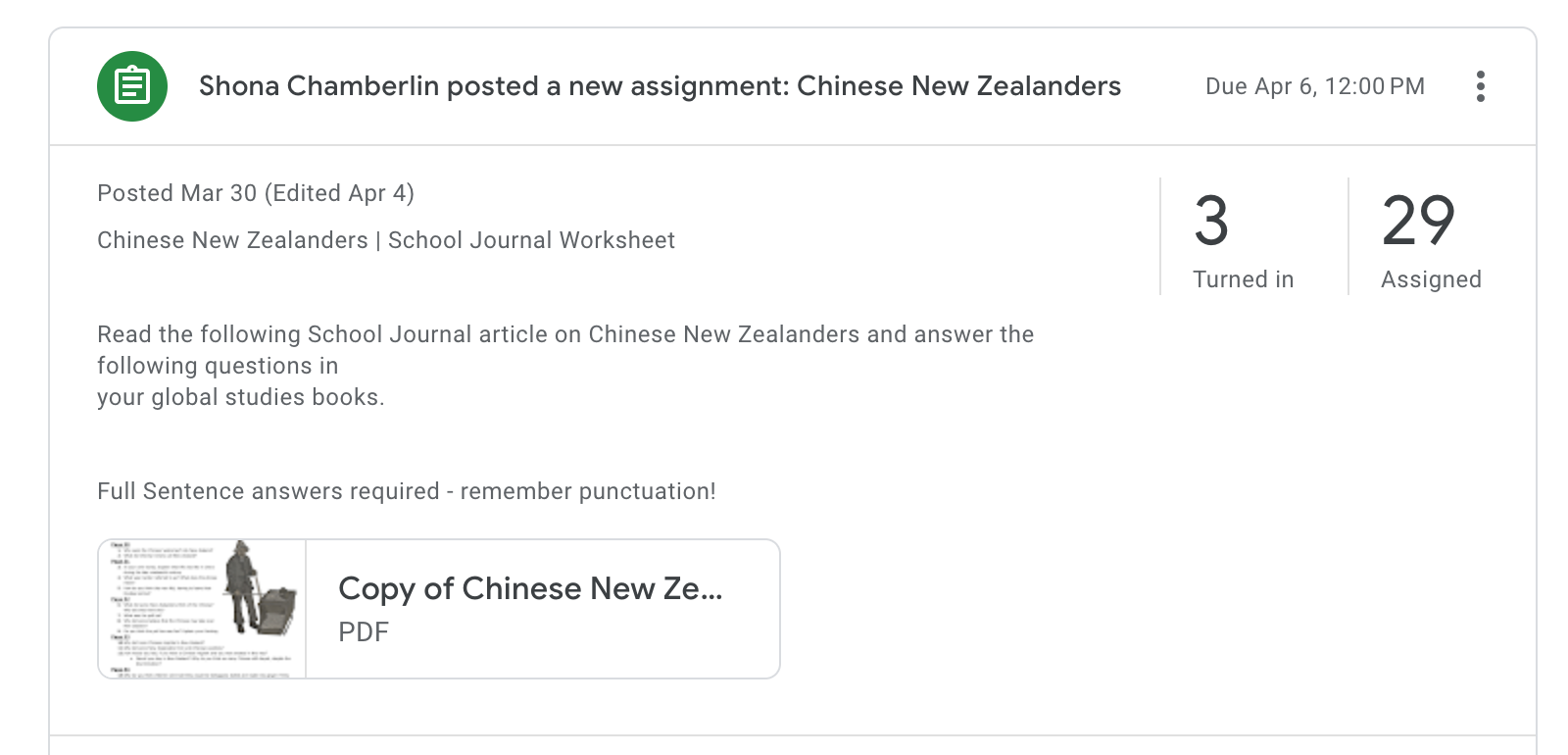
-
EXPLORE / TŪHURA learning intentions:
- We are EXPLORING how different cultures participated in and contributed to NZ by categorising reason why people migrate into push/pull factors
- We are EXPLORING how different cultures participated in and contributed to NZ by illustrating the life of Chinese Goldminers (1800s) and Pasifika peoples (1950s)
- We are EXPLORING how different cultures participated in and contributed to NZ by examining the barriers faced by migrant groups and how they were included and excluded
Success Criteria: I can.....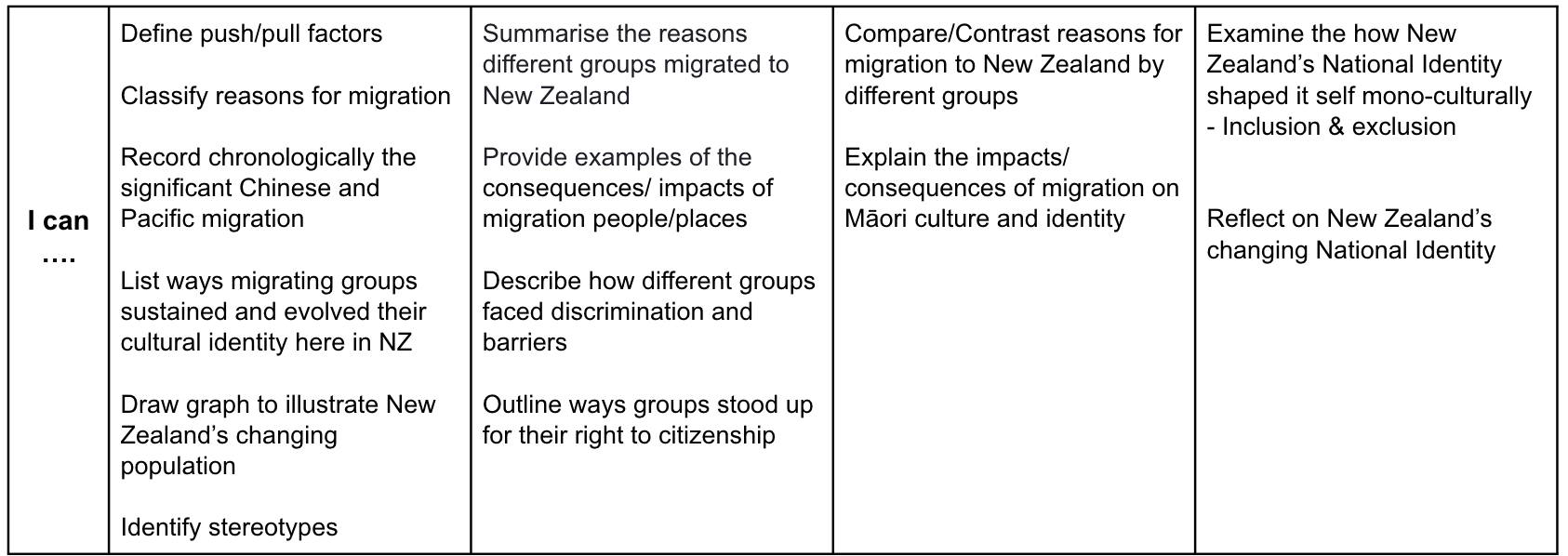
Learning Activities
1.
2.
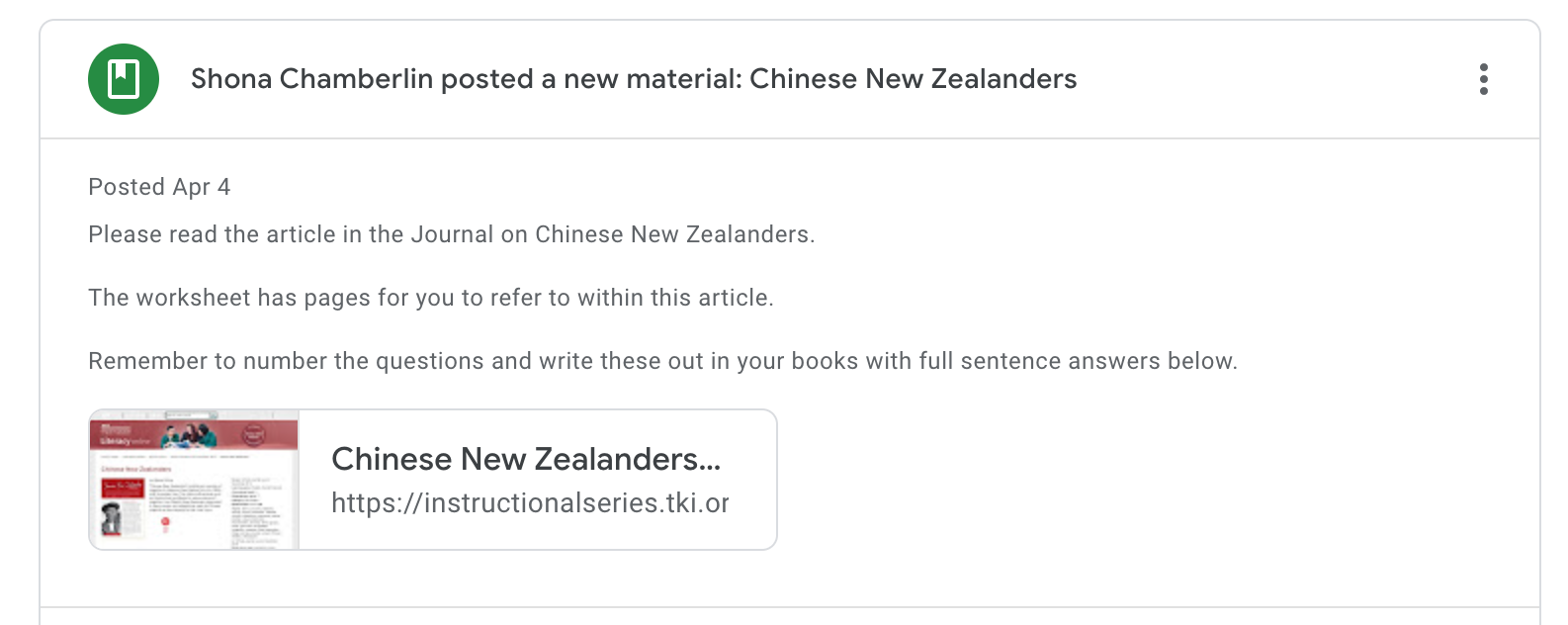
Further Learning Opportunities
-
EXPLORE / TŪHURA learning intentions:
- We are EXPLORING how different cultures participated in and contributed to NZ by categorising reason why people migrate into push/pull factors
- We are EXPLORING how different cultures participated in and contributed to NZ by illustrating the life of Chinese Goldminers (1800s) and Pasifika peoples (1950s)
- We are EXPLORING how different cultures participated in and contributed to NZ by examining the barriers faced by migrant groups and how they were included and excluded
Success Criteria: I can.....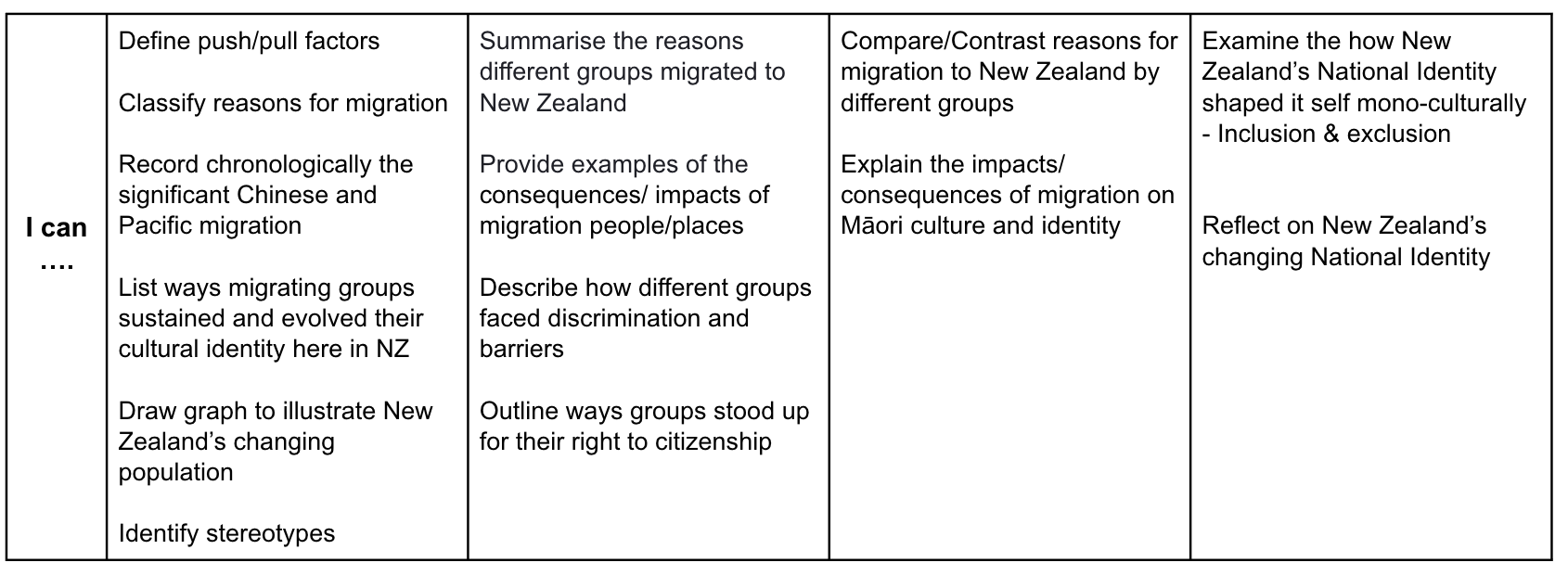
Learning Activities
1. Reading article on Chinese New Zealanders
2. Completing worksheet on Chinese migration (Google Classroom)
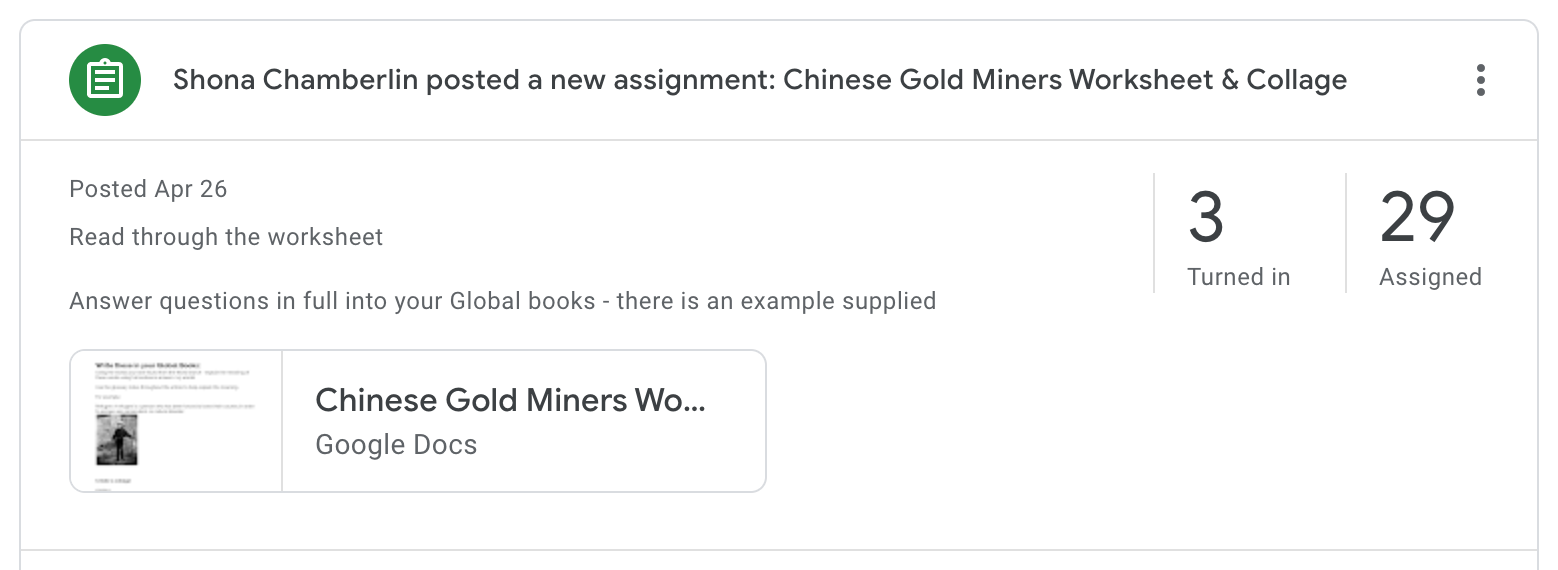
Further Learning Opportunities
-
EXPLORE / TŪHURA learning intentions:
- We are EXPLORING participating countries in the Women's FIFA World Cup
- We are EXPLORING sports and their country of origin
- We are EXPLORING cultures and traditions of participating world cup countries.
- We are EXPLORING food and festival traditions from various cultures and the history surrounding these
Kia ora and welcome to the first week back, 7F2!
Success Criteria: I can...
•
•
•Activities:
- Write here
- Write here
Further Learning:
Write here...
-
FOCUS / ARONGA learning intentions:
- We are FOCUSING on the role sport has had in defining culture and identity.
- We are FOCUSING on sporting history and culture by investigating the origins of sports
- We are IDENTIFYING current issues associated with participating countries in the FIFA world cup
- We are FOCUSING on why culture and identity of a country is important
Kia ora 7F1!
Success Criteria: I can...
• Discuss and explain stereotypes that affect all levels of sport
• Discover how and why national sports vary around the globeActivities:
- Cloze activity and word banking
- Group discussions and feedback sessions on stereotypes
Further Learning:
Feel free to find further resources and investigate the FIFA world cup website to improve your knowledge of this event.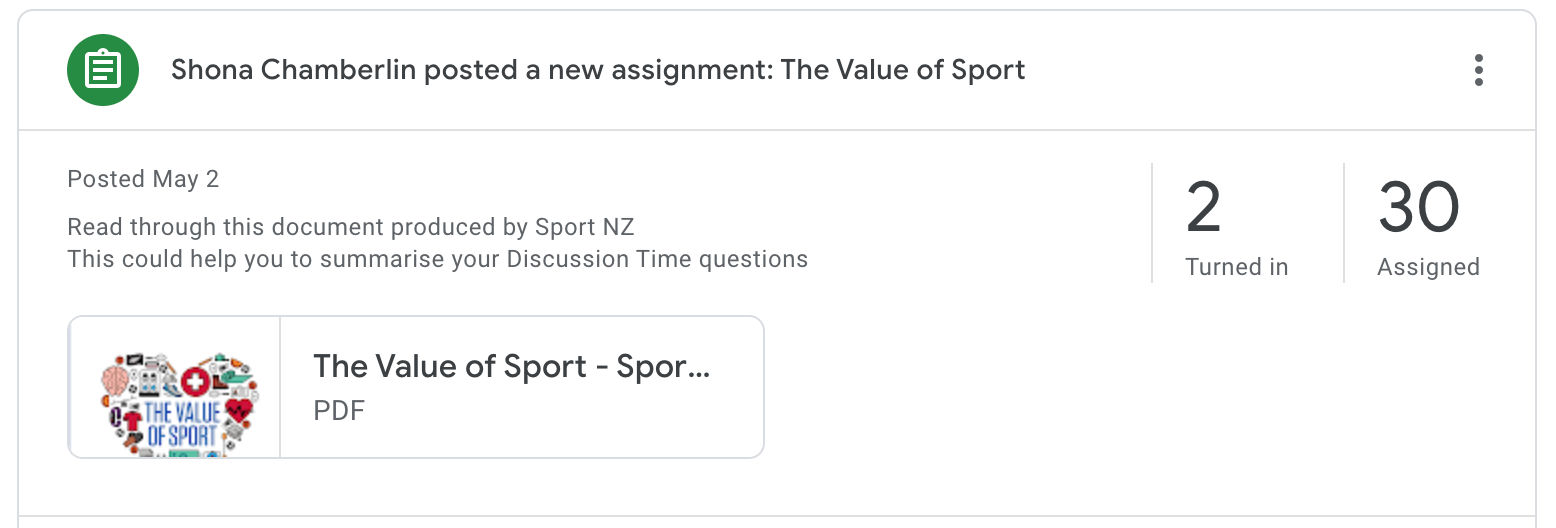
-
FOCUS / ARONGA learning intentions:
- We are FOCUSING on the role sport has had in defining culture and identity.
- We are FOCUSING on sporting history and culture by investigating the origins of sports
- We are IDENTIFYING current issues associated with participating countries in the FIFA world cup
- We are FOCUSING on why culture and identity of a country is important
Kia ora 7F2!
Success Criteria: I can...
• Discuss and explain stereotypes that affect all levels of sport
• Discover how and why national sports vary around the globeActivities:
- Cloze activity and word banking
- Group discussions and feedback sessions on stereotypes
Further Learning:
Feel free to find further resources and investigate the FIFA world cup website to improve your knowledge of this event.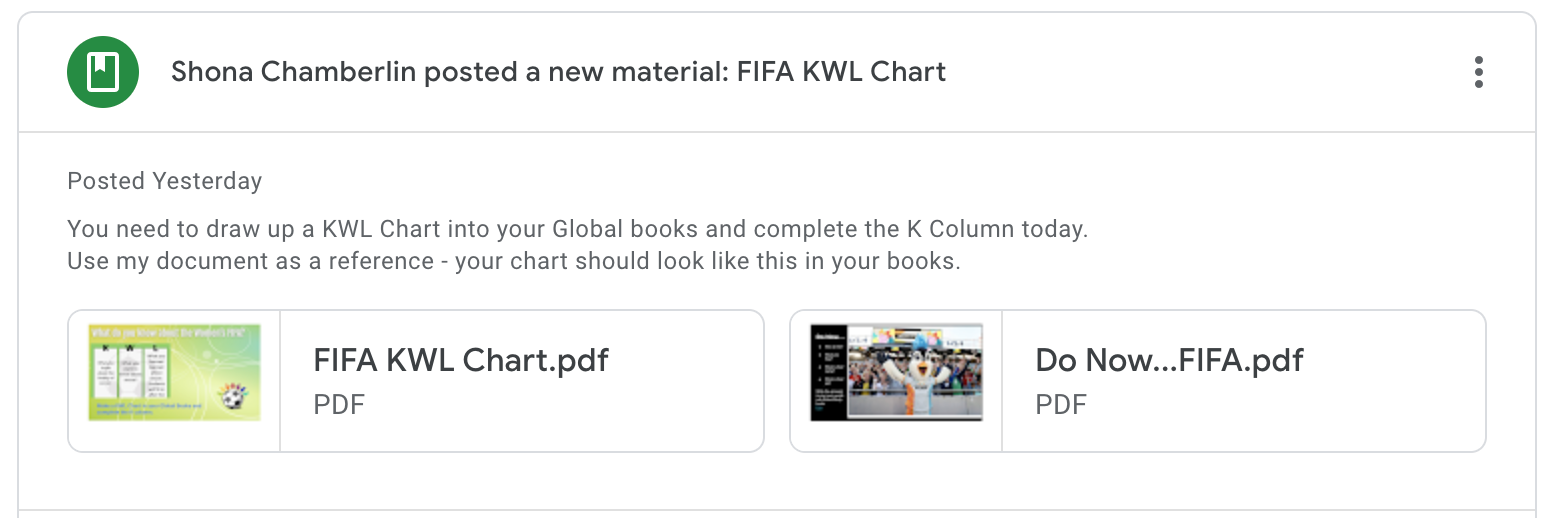
-
EXPLORE / TŪHURA learning intentions:
- We are EXPLORING participating countries in the Women's FIFA World Cup
- We are EXPLORING sports and their country of origin
- We are EXPLORING cultures and traditions of participating world cup countries.
- We are EXPLORING food and festival traditions from various cultures and the history surrounding these.
FOCUS / ARONGA learning intentions:
- We are FOCUSING on the role sport has had in defining culture and identity.
- We are FOCUSING on sporting history and culture by investigating the origins of sports
- We are IDENTIFYING current issues associated with participating countries in the FIFA world cup
- We are FOCUSING on why culture and identity of a country is important
Kia ora everyone. This week is Assessment week. You will have opportunity to work on your assessment in class time - but you will also need to work on this at home/in your own time.
Success Criteria:
Activities
- To work on our design and information process.
Further Learning:
Write here... -
EXPLORE / TŪHURA learning intentions:
- We are EXPLORING participating countries in the Women's FIFA World Cup
- We are EXPLORING sports and their country of origin
- We are EXPLORING cultures and traditions of participating world cup countries.
- We are EXPLORING food and festival traditions from various cultures and the history surrounding these.
PLAN & DO / WHAKAMAHI learning intentions:
- Our Plan and Do research and present a poster of differing sports, history and origins
- We are planning to take a ‘virtual’ trip to different countries to learn about culture, traditions and topical issues
Kia ora everyone. This week is the final week for assessment and we all should be working on our Posters. Remember to check the required criteria and detail check boxes to ensure you have all the information necessary.
Success Criteria:
Completion of Poster on a countries National Sport
Activities:
- Work on and complete poster for assessment using the resources supplied.
Further Learning:
-
For the purpose of this assessment students are required to create a one-pager informative poster about a national sport of their choice.
-
EXPLORE / TŪHURA learning intentions:
- We are EXPLORING participating countries in the Women's FIFA World Cup
- We are EXPLORING sports and their country of origin
- We are EXPLORING cultures and traditions of participating world cup countries.
- We are EXPLORING food and festival traditions from various cultures and the history surrounding these.
Kia ora lovely people of 7F2. This week we are deep in the depths of France investigating the French Revolution, the absolute power of King Louis XVI and inequality began to be challenged. Famous French Landmarks are also a feature of our investigations.
Success Criteria:
We are able to answer comprehensive historical questionnaires on the French Revolution. We can investigate key features about the country of France including geography, languages, and landmarks.
Activities:
- Researching famous French Landmarks
- Videos and Graphic organisers.
Further Learning:
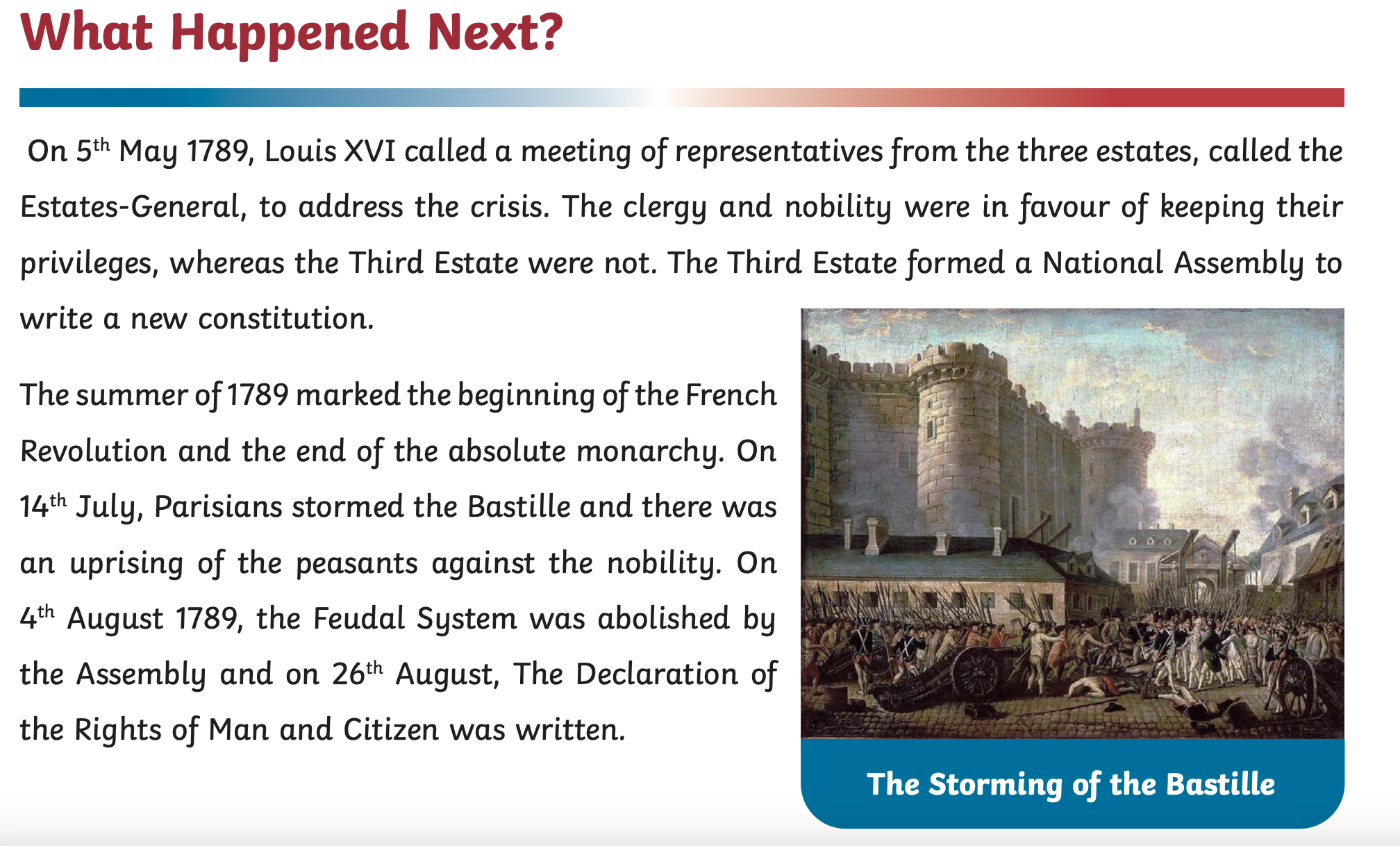
-
EXPLORE / TŪHURA learning intentions:
- We are EXPLORING participating countries in the Women's FIFA World Cup
- We are EXPLORING sports and their country of origin
- We are EXPLORING cultures and traditions of participating world cup countries.
- We are EXPLORING food and festival traditions from various cultures and the history surrounding these.
PLAN & DO / WHAKAMAHI learning intentions:
- Our Plan and Do research and present a poster of differing sports, history and origins
- We are planning to take a ‘virtual’ trip to different countries to learn about culture, traditions and topical issues
-
EXPLORE / TŪHURA learning intentions:
- We are EXPLORING participating countries in the Women's FIFA World Cup
- We are EXPLORING sports and their country of origin
- We are EXPLORING cultures and traditions of participating world cup countries.
- We are EXPLORING food and festival traditions from various cultures and the history surrounding these.
Bienvenue dans la semaine Team 7F1.This week will be introducing you all to the diversity and cultural significance of French cuisine.Success Criteria:
Activities:
- EdPuzzle & video's
- Collaborative digital presentation
Success Criteria:
We can recognise a variety of iconic French food and explain the history and origins of these foods.
Activities:
- Ed Puzzle & videos
- Collaborative digital presentation
Further Learning:
-
EXPLORE / TŪHURA learning intentions:
- We are EXPLORING participating countries in the Women's FIFA World Cup
- We are EXPLORING sports and their country of origin
- We are EXPLORING cultures and traditions of participating world cup countries.
- We are EXPLORING food and festival traditions from various cultures and the history surrounding these.
PLAN & DO / WHAKAMAHI learning intentions:
- Our Plan and Do research and present a poster of differing sports, history and origins
- We are planning to take a ‘virtual’ trip to different countries to learn about culture, traditions and topical issues
-
REFLECT / WHAIWHAKAARO learning intentions:
- We are reflecting by sharing and evaluating our research and posters
- We are reflecting on personal cultural identity and the role sport and food has in shaping this
-
FOCUS / ARONGA learning intentions:
- We are FOCUSING on the 2023 election by discussing the importance of democracy
- We are FOCUSING on the 2023 election by explaining New Zealand’s electoral system (MMP)
- We are FOCUSING on the 2023 election by explaining the functions of New Zealand parliament
- We are FOCUSING on the 2023 election by describing the process of making laws
- We are FOCUSING on the 2023 election by comparing key politicians and political parties
PLAN & DO / WHAKAMAHI learning intentions:
- We are PLANNING to take a ‘virtual’ trip to different countries to learn about culture, traditions and topical issues.
Kia ora Team 7F1 and welcome back to Term 3.
We will be continuing with our ventures into different countries associated with the Women's FIFA World Cup.
- Understand the geography and important landmarks.
- Explore the culture, language, and traditions of the people.
- Learn about the traditional food and festivals celebrated.
- Gain knowledge about the government system and economy
Success Criteria:
- Identify key geographic features and landmarks of our chosen country.
- Explain the cultural aspects, language, and traditions of the people.
- Identify traditional food and festivals.
- Understand what government system they have
- Recognise contributions of notable individuals from these countries in history and modern time.
Activities:
- Collaborative Research Groups
- Art Designs and Presentation Cards
Further Learning:
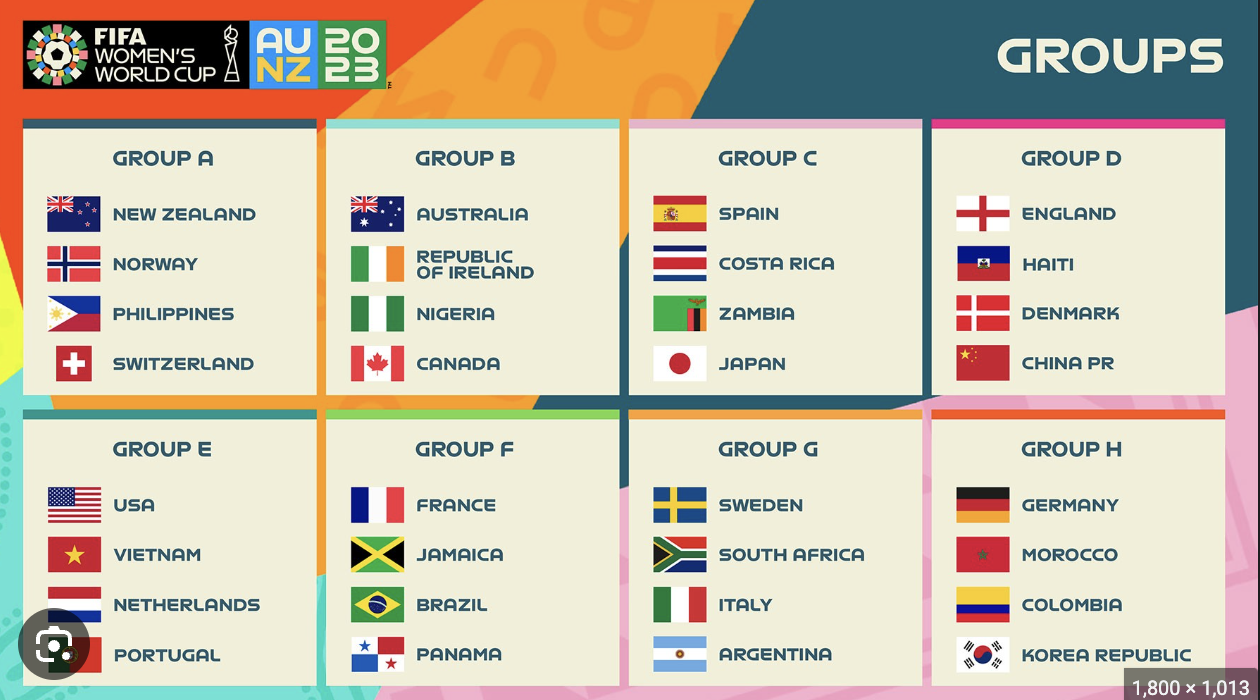
-
FOCUS / ARONGA learning intentions:
- We are FOCUSING on the 2023 election by discussing the importance of democracy
- We are FOCUSING on the 2023 election by explaining New Zealand’s electoral system (MMP)
- We are FOCUSING on the 2023 election by explaining the functions of New Zealand parliament
- We are FOCUSING on the 2023 election by describing the process of making laws
- We are FOCUSING on the 2023 election by comparing key politicians and political parties
PLAN & DO / WHAKAMAHI learning intentions:
- Our Plan and Do research and present a poster of differing sports, history and origins
- We are planning to take a ‘virtual’ trip to different countries to learn about culture, traditions and topical issue
Kia ora Team 7F1 and welcome to Week 2 Term 3.
We will be continuing with our ventures into different countries associated with the Women's FIFA World Cup.
- Understand the geography and important landmarks.
- Explore the culture, language, and traditions of the people.
- Learn about the traditional food and festivals celebrated.
- Gain knowledge about the government system and economy
Success Criteria:
- Identify key geographic features and landmarks of our chosen country.
- Explain the cultural aspects, language, and traditions of the people.
- Identify traditional food and festivals.
- Understand what government system they have
- Recognise contributions of notable individuals from these countries in history and modern time.
Activities:
- Collaborative Research Groups
- Art Designs and Presentation Cards
Further Learning:

-
FOCUS / ARONGA learning intentions:
- We are FOCUSING on the 2023 election by discussing the importance of democracy
- We are FOCUSING on the 2023 election by explaining New Zealand’s electoral system (MMP)
- We are FOCUSING on the 2023 election by explaining the functions of New Zealand parliament
- We are FOCUSING on the 2023 election by describing the process of making laws
- We are FOCUSING on the 2023 election by comparing key politicians and political parties
Kia ora Team. This week we our focus turns to Democracy, why it is important, other political systems in the world and historical origins.
Success Criteria
We we be able to identify different political systems, describe the differences between the systems and explain why democracy is important.
Activities:
- Class discussion - decision making and democracies
- Types of Government class discussion
- Democratic Elections Reading Comprehension
- Forms of government Videos
- Origins of democracy worksheet
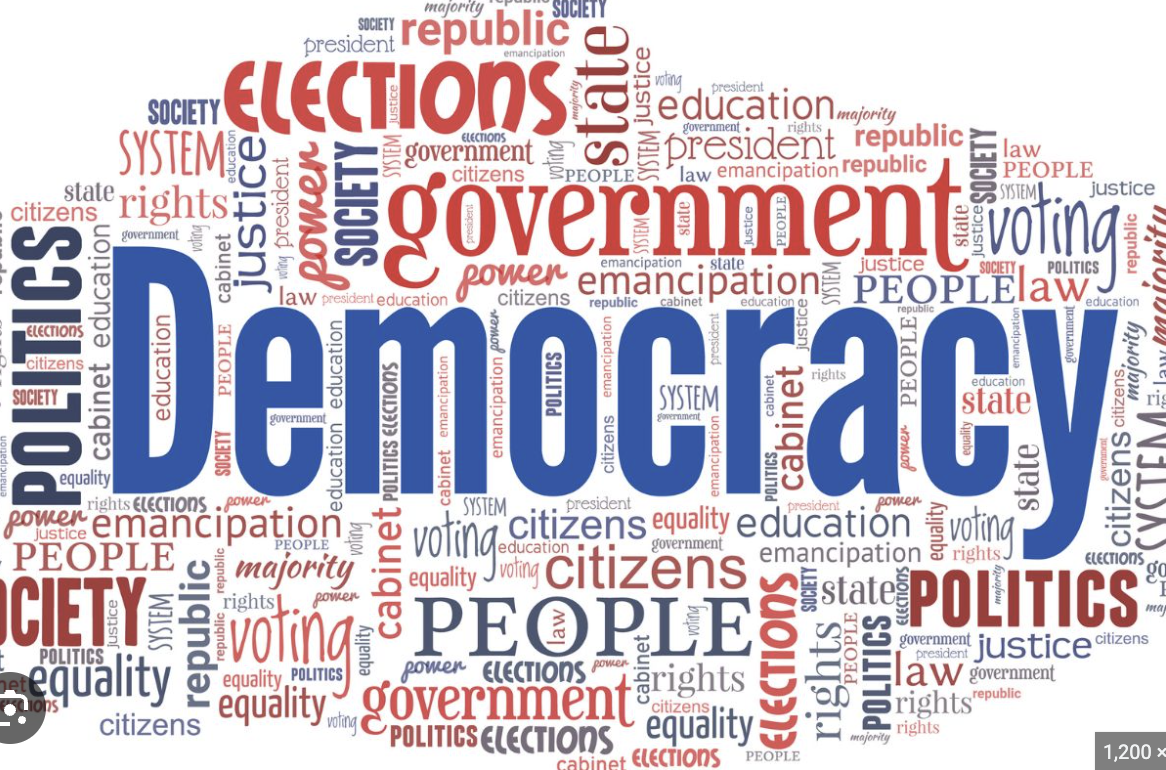
-
FOCUS / ARONGA learning intentions:
- We are FOCUSING on the 2023 election by discussing the importance of democracy
- We are FOCUSING on the 2023 election by explaining New Zealand’s electoral system (MMP)
- We are FOCUSING on the 2023 election by explaining the functions of New Zealand parliament
- We are FOCUSING on the 2023 election by describing the process of making laws
- We are FOCUSING on the 2023 election by comparing key politicians and political parties
Kia ora Team. This week we our focus turns to What does Government actually do, what the branches of our Government are and what responsibilities they have.
Success Criteria
We are able to explain the origins of Democracy, identify what our government does, recall the branches within parliament and roles they have.Activities
- Word Search and Definitions
- Athenian Origins of Democracy worksheet
- Video origin of democracy
- What exactly do Governments do class discussions
- Ed puzzles

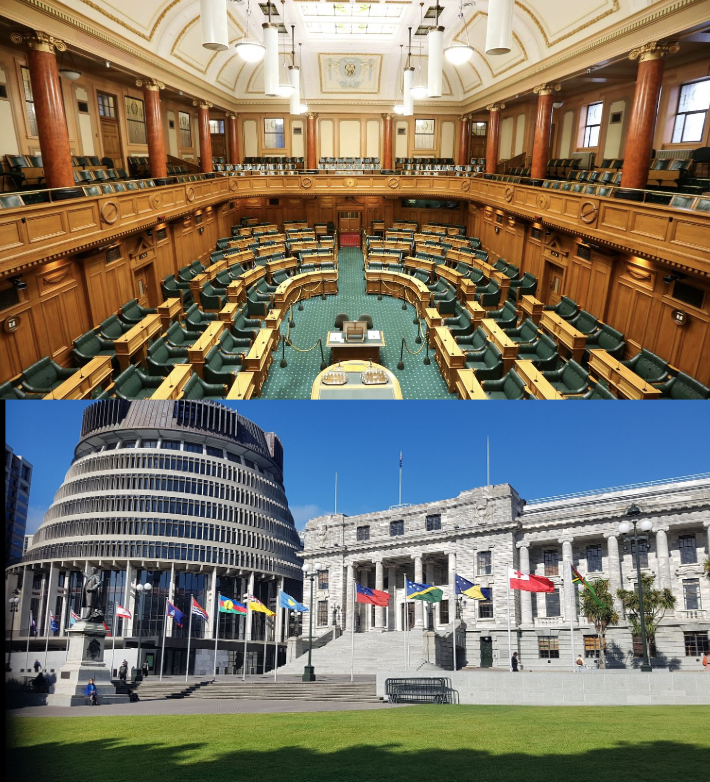
-
FOCUS / ARONGA learning intentions:
- We are FOCUSING on the 2023 election by discussing the importance of democracy
- We are FOCUSING on the 2023 election by explaining New Zealand’s electoral system (MMP)
- We are FOCUSING on the 2023 election by explaining the functions of New Zealand parliament
- We are FOCUSING on the 2023 election by describing the process of making laws
- We are FOCUSING on the 2023 election by comparing key politicians and political parties
Kia ora Team. This week our focus is looking at what MMP elections are, what the 3 branches of government roles are, why we need the separation of powers and how electorates are decided.
Success Criteria:
I can outline how the three branches of government work
I can discuss why we need separation of powers
I can describe how an MMP election works.
Activities:
- Worksheet activities
- Videos
- Groups discussions
- Kahoot
- Fruit Elections
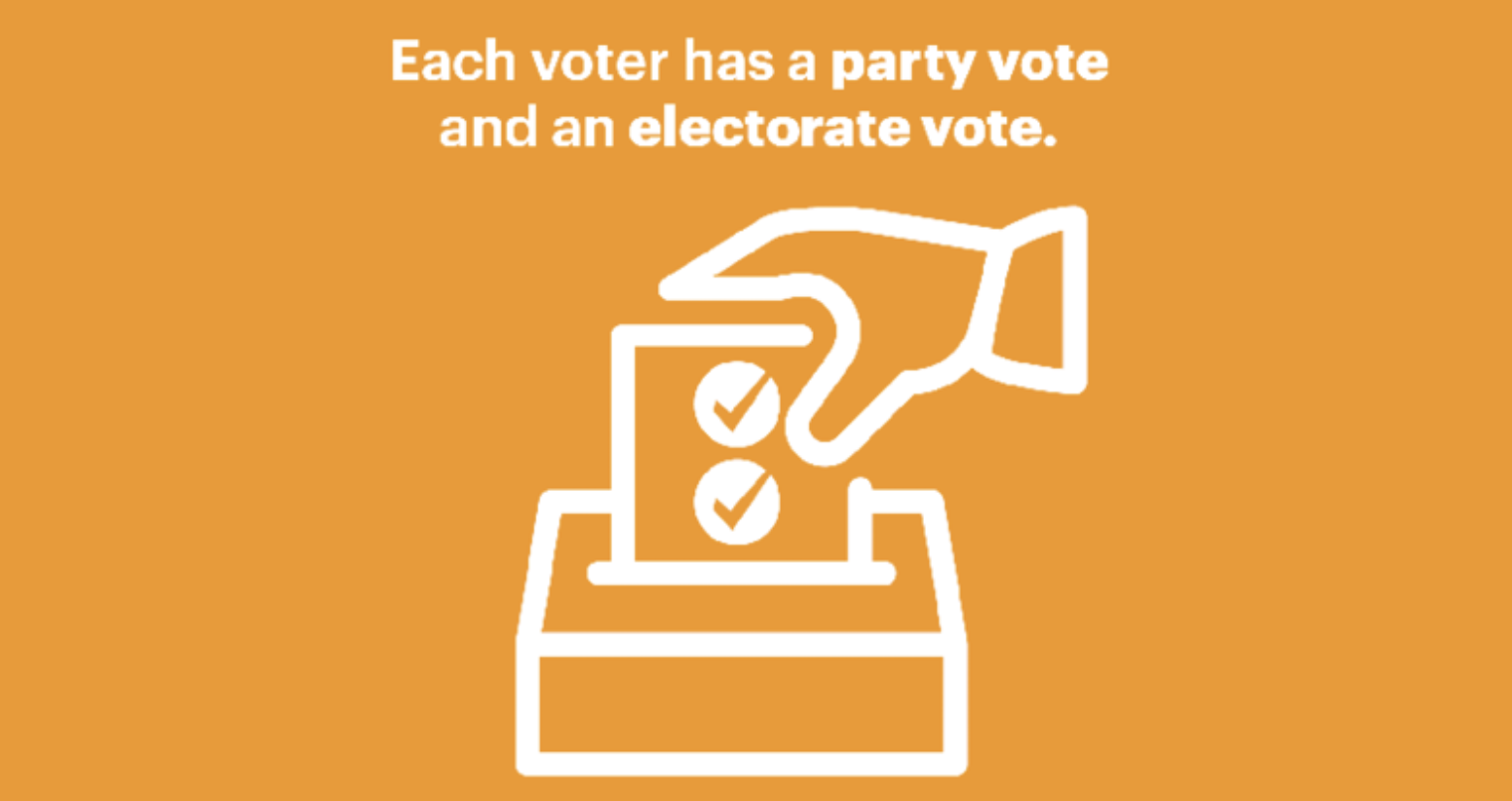
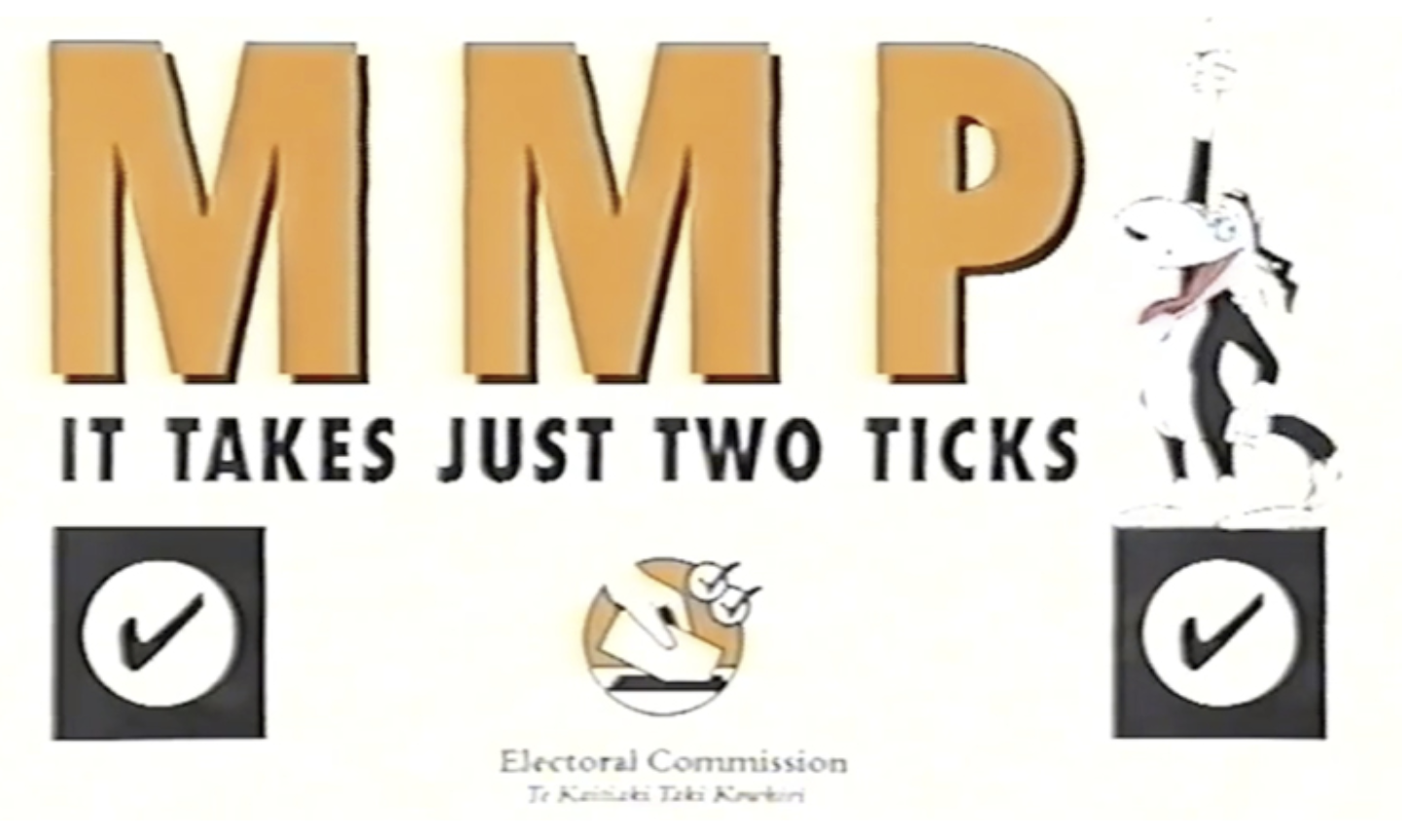
-
FOCUS / ARONGA learning intentions:
- We are FOCUSING on the 2023 election by discussing the importance of democracy
- We are FOCUSING on the 2023 election by explaining New Zealand’s electoral system (MMP)
- We are FOCUSING on the 2023 election by explaining the functions of New Zealand parliament
- We are FOCUSING on the 2023 election by describing the process of making laws
- We are FOCUSING on the 2023 election by comparing key politicians and political parties
-
Kia ora Team and Welcome to Week 6. This week we will be furthering our knowledge of what MMP is, what happens in Parliament, what an Electorate is and what we vote for in an election.
Success Criteria:
I can describe how an MMP election works
I can describe how electorates are decided
Activities:
- Video's
- Bus Stop Activities
- Fruit elections
- Kahoots
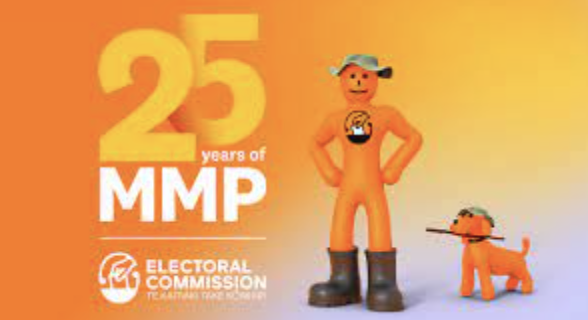
-
FOCUS / ARONGA learning intentions:
- We are FOCUSING on the 2023 election by discussing the importance of democracy
- We are FOCUSING on the 2023 election by explaining New Zealand’s electoral system (MMP)
- We are FOCUSING on the 2023 election by explaining the functions of New Zealand parliament
- We are FOCUSING on the 2023 election by describing the process of making laws
- We are FOCUSING on the 2023 election by comparing key politicians and political parties
Kia ora Team. This week we are investigating different political parties and members and comparing their policies
Success Criteria:
I can compare and contrast politicians and political parties
I can summarise key information about political parties and politicians
Activities:
- Group collaborative work
- Slide presentations
- Videos
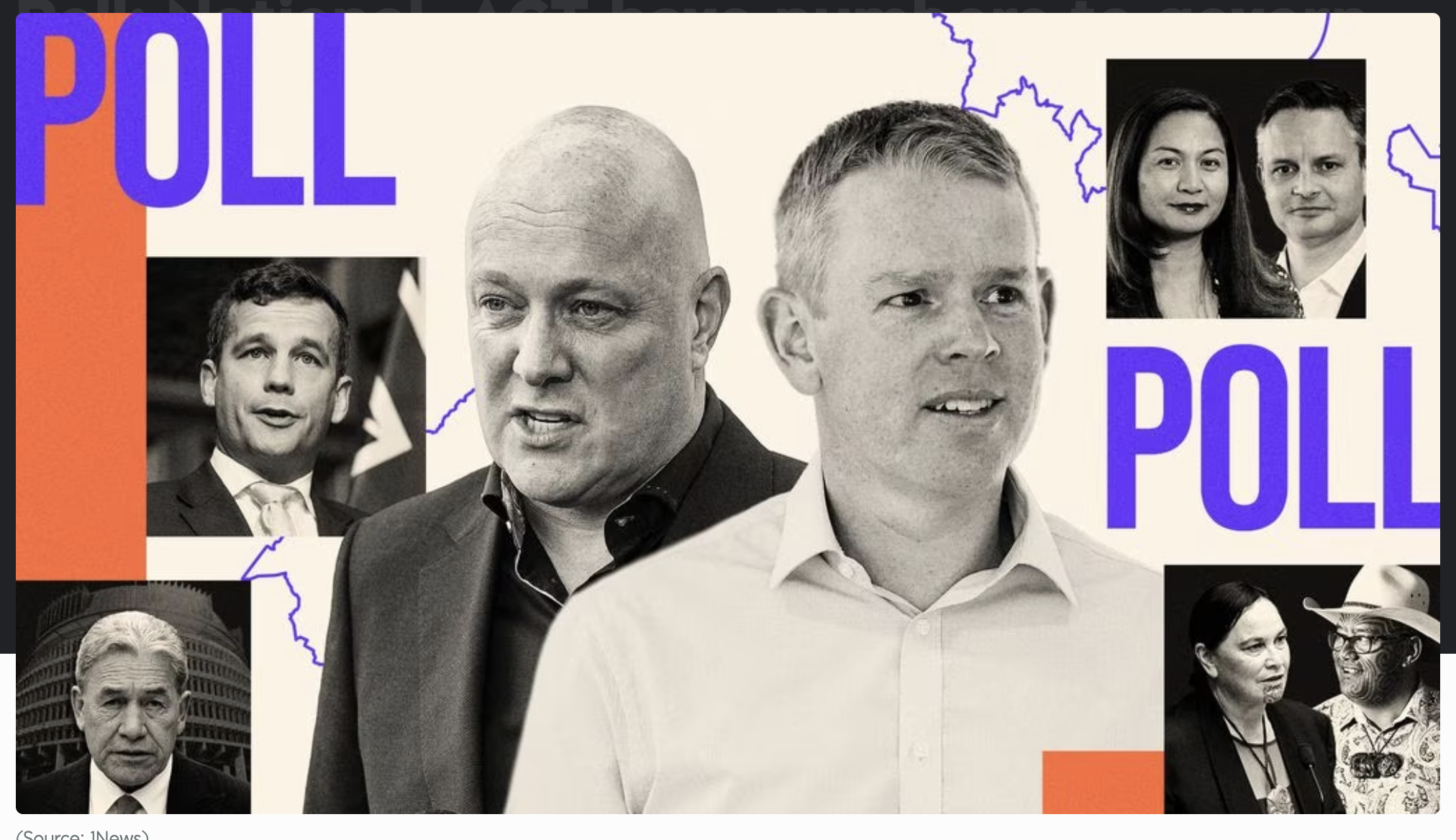

-
FOCUS / ARONGA learning intentions:
- We are FOCUSING on the 2023 election by discussing the importance of democracy
- We are FOCUSING on the 2023 election by explaining New Zealand’s electoral system (MMP)
- We are FOCUSING on the 2023 election by explaining the functions of New Zealand parliament
- We are FOCUSING on the 2023 election by describing the process of making laws
- We are FOCUSING on the 2023 election by comparing key politicians and political parties
Kia ora Team. This week our focus is investigating the Political Parties of Aōtearoa, who they are, what they stand for, history of the party and more.
Success Criteria:
- I can summarise key information about political parties and politicians
- I am able to work cohesively within my group
Activities:
- Political Crosswords
- Cloze Activity
- Slide Presentations
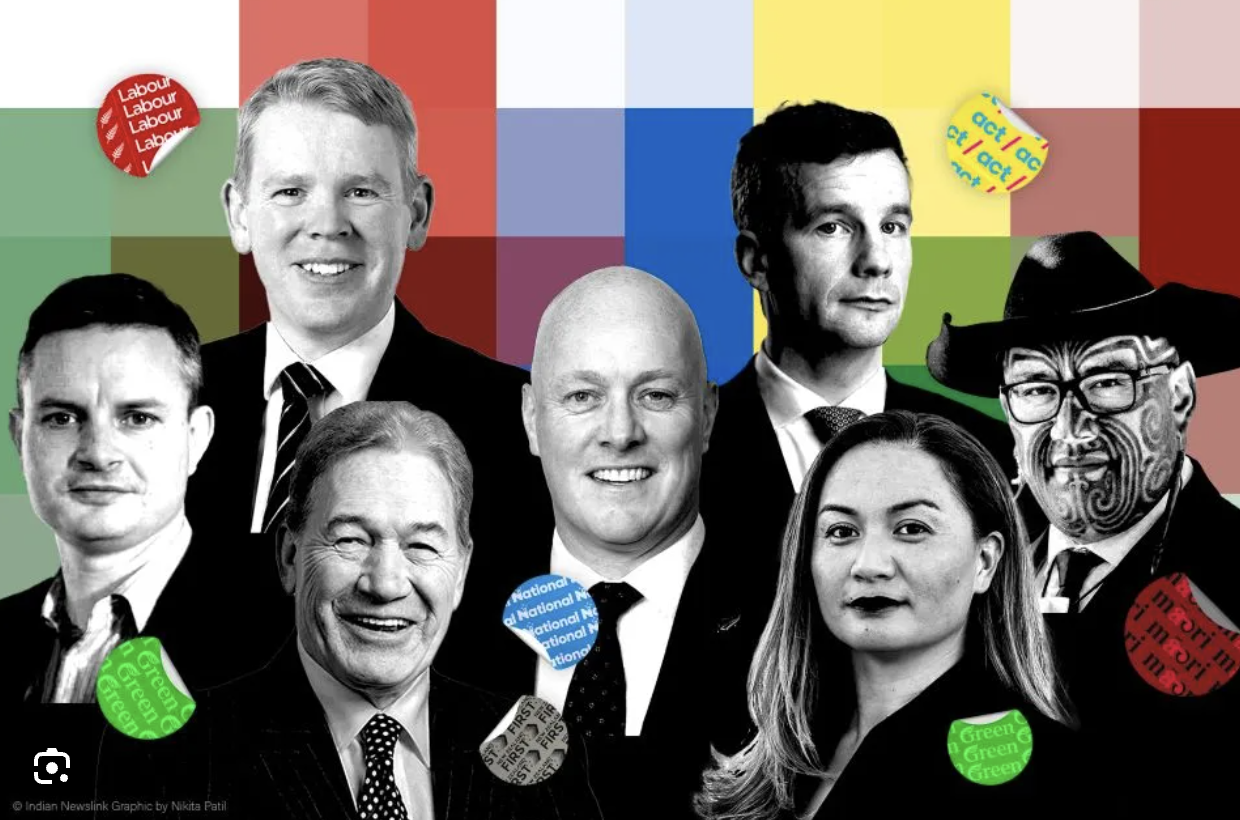 .
. -
FOCUS / ARONGA learning intentions:
- We are FOCUSING on the 2023 election by discussing the importance of democracy
- We are FOCUSING on the 2023 election by explaining New Zealand’s electoral system (MMP)
- We are FOCUSING on the 2023 election by explaining the functions of New Zealand parliament
- We are FOCUSING on the 2023 election by describing the process of making laws
- We are FOCUSING on the 2023 election by comparing key politicians and political parties
Kia ora Team and welcome to Week 9!! This week we are looking at politicians and the leaders of our Political Parties.
Success Criteria:
I can compare and contrast politicians and political parties
Activities:- Group collaboration
- Question collations

-
REFLECT / WHAIWHAKAARO learning intentions:
- We are REFLECTING on how we can participate in government systems
- We are REFLECTING on our positive impact in our community
PLAN & DO / WHAKAMAHI learning intentions:
- We are PLANNING to participate & actively contribute to the Ngāhere Whānau Elections.
Kia ora Team. Last week of the term and we are looking at politician profiles, presenting our political party to the wider Whanau audience to campaign our policies and then...we are casting votes!!
Success Criteria:
I can summarise key information about political parties and politicians.
I can compare and contrast politicians and political parties
Activities:
- Group collaboration
- Blooket question banks
- Political scavenger hunt
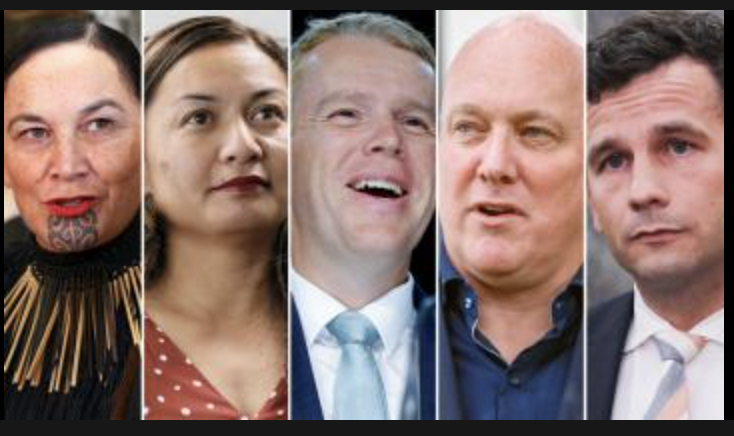
-
Kia ora Team and Welcome back to Term 4! This week is the final countdown to the Aōtearoa's Elections - who will then be leading our Government?
Our focus this week is will be on our Assessment and is your time in class to draft, design and construct.
Success Criteria:
You will be planning for your assessment for Term 4.
Activities:
- Jigsaw Election Information
- Researching for your assessment

-
For the purpose of this assessment students will create an information brochure on how democracy, MMP and voting works in NZ
-
Kia ora Team and Welcome back to Term 4! This week is the final countdown to the Aōtearoa's Elections - who will then be leading our Government?
Our focus this week is will be on our Assessment and is your time in class to draft, design and construct.
Success Criteria:
You will be planning for your assessment for Term 4.
Activities:
- Jigsaw Election Information
- Researching for your assessment

-
Kia ora Team and Welcome back to Term 4! This week is the final countdown to finalising our Brochure Assessments.
Success Criteria:
You will be planning for your assessment for Term 4.
Activities:
- Jigsaw Election Information
- Researching for your assessment

-
EXPLORE / TŪHURA learning intentions:
- We are EXPLORING the historical origins of Halloween and researching how this has evolved over time.
- We are EXPLORING the history and origins of Dia de Los Muertos, Diwali and Christmas by investigating traditions and meanings.
- We are EXPLORING what cultural appropriation is and how this connects with celebrations and festivals
Awhinatanga/Compassion - Celebrating cultural diversitySuccess Criteria:
I am able to comprehend the historical origins of Samrain and how this tradition has evolved to modern interpretations.
Activities:
- EdPuzzle & Videos
- Comprehension Articles and Questions
- Halloween product construction design
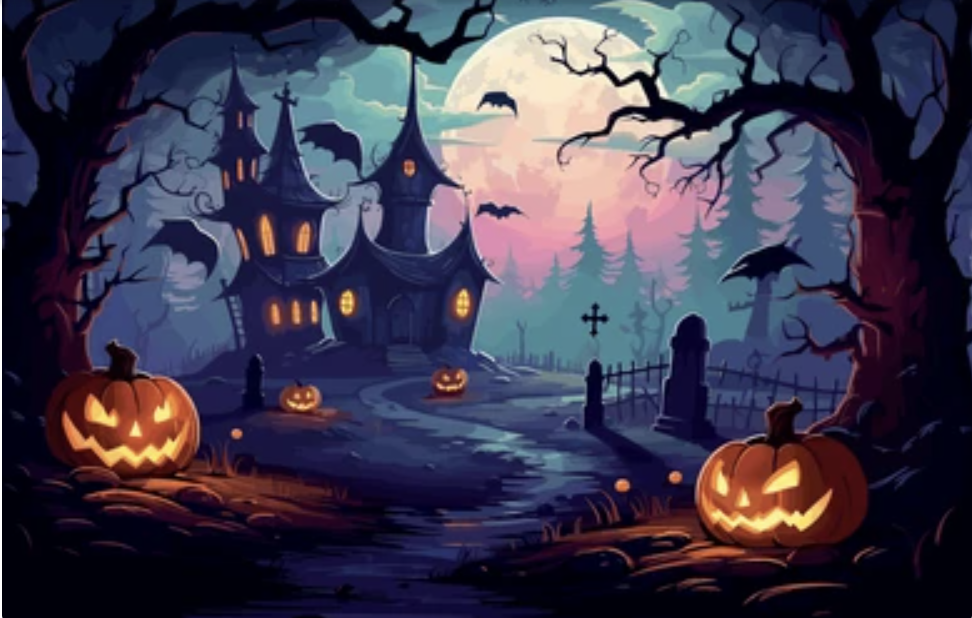
-
FOCUS / ARONGA learning intentions:
- We are FOCUSING on what cultural appropriation is by analysing how this features within celebrations and festivals
- We are FOCUSING on commercialism and capitalism of celebrations and festivals by investigating the economics tradeoffs of these.
EXPLORE / TŪHURA learning intentions:
- We are EXPLORING the historical origins of Halloween and researching how this has evolved over time.
- We are EXPLORING the history and origins of Dia de Los Muertos, Diwali and Christmas by investigating traditions and meanings.
- We are EXPLORING what cultural appropriation is and how this connects with celebrations and festivals
-
FOCUS / ARONGA learning intentions:
- We are FOCUSING on what cultural appropriation is by analysing how this features within celebrations and festivals
- We are FOCUSING on commercialism and capitalism of celebrations and festivals by investigating the economics tradeoffs of these.
EXPLORE / TŪHURA learning intentions:
- We are EXPLORING the historical origins of Halloween and researching how this has evolved over time.
- We are EXPLORING the history and origins of Dia de Los Muertos, Diwali and Christmas by investigating traditions and meanings.
- We are EXPLORING what cultural appropriation is and how this connects with celebrations and festivals
Kia ora Team. This week we are investigating what cultural appropriation is, the relevancy of this in celebrations and being able to correctly identify what this is.
Context & MHJC Value/s:
Celebrations & Festivals
Awhinatanga/Compassion - Celebrating cultural diversitySuccess Criteria:

Activities:
- Video's
- Group Appropriation Trial
- Comprehension Activities
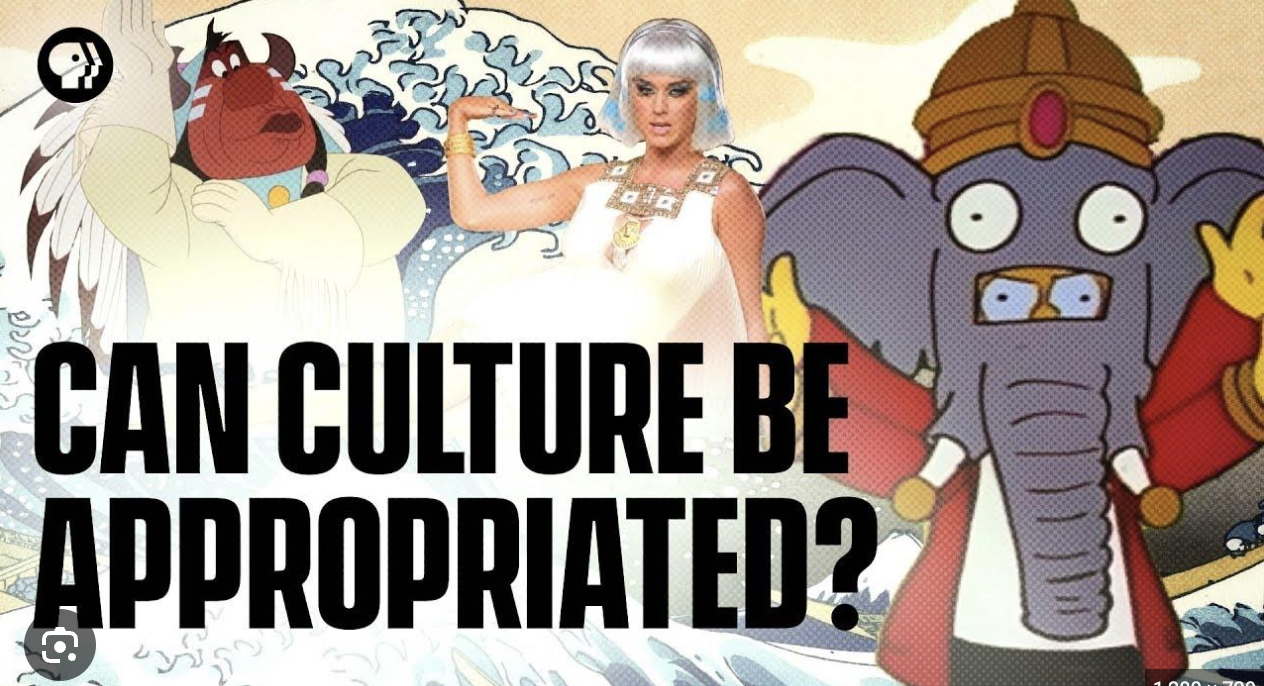
-
EXPLORE / TŪHURA learning intentions:
- We are EXPLORING the historical origins of Halloween and researching how this has evolved over time.
- We are EXPLORING the history and origins of Dia de Los Muertos, Diwali and Christmas by investigating traditions and meanings.
- We are EXPLORING what cultural appropriation is and how this connects with celebrations and festivals
Kia ora Team. This week we are working on a Cultural Appropriation Trial in which we will be deciding if cultural appropriation or cultural appreciation has occurred.
Success Criteria:
The goals of this lesson are for students to understand cultural appropriation vs cultural appreciation, why it can be harmful to members of minority cultures, and what can be done to address this issue.
Activities:

- Video's
- Group Appropriation Trial
- Comprehension Activities

-
EXPLORE / TŪHURA learning intentions:
- We are EXPLORING the historical origins of Halloween and researching how this has evolved over time.
- We are EXPLORING the history and origins of Dia de Los Muertos, Diwali and Christmas by investigating traditions and meanings.
- We are EXPLORING what cultural appropriation is and how this connects with celebrations and festivals.
Success Criteria:
I can identify a country to research, draw a map complete with labels describing the location of the country using map references, I am able to draw a climate graph of my chosen country inclusive of labels and describe the climate in the capital city.
Activities:
- Researching
- Map drawing

-
REFLECT / WHAIWHAKAARO learning intentions:
- We are REFLECTING by critiquing how economics play an important part in celebrations.
EXPLORE / TŪHURA learning intentions:
- We are EXPLORING the historical origins of Halloween and researching how this has evolved over time.
- We are EXPLORING the history and origins of Dia de Los Muertos, Diwali and Christmas by investigating traditions and meanings.
- We are EXPLORING what cultural appropriation is and how this connects with celebrations and festivals.
Success Criteria:
I can identify a country to research, draw a map complete with labels describing the location of the country using map references, I am able to draw a climate graph of my chosen country inclusive of labels and describe the climate in the capital city.
Activities:
- Researching
- Map drawing

-
REFLECT / WHAIWHAKAARO learning intentions:
- We are REFLECTING by critiquing how economics play an important part in celebrations.
Success Criteria:
I can identify a country to research, draw a map complete with labels describing the location of the country using map references, I am able to draw a climate graph of my chosen country inclusive of labels and describe the climate in the capital city.
Activities:
- Researching
- Map drawing


